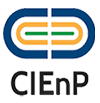The FDA has approved Merck & Co’s bezlotoxumab to reduce the recurrence of Clostridium difficile infection, marking the first approval for a new approach to the treatment of bacterial infections. Unlike antibiotics, which kill pathogenic bacteria, bezlotoxumab is an antibody that mops up toxins that are released by C. difficile. Although antibiotics can control C. difficile, the infection recurs within weeks in around 25% of patients. In two phase III trials that tested bezlotoxumab in conjunction with standard of care…
Living therapeutics: Scientists genetically modify bacteria to deliver drugs
In 2004, Laurel Lagenaur was struck by a report from the United Nations showing that HIV was increasingly infecting women, who accounted for nearly half of the 38 million adults living with HIV worldwide1. Until then, researchers in the US had considered the disease to strike primarily men who had sex with men. As the director of research at Osel, a biotech start-up based in Mountain View, California, Lagenaur began to ponder ways to address the growing crisis. The company,…
Closing the deal
A checklist for negotiating robust licensing agreements. Universities have long been viewed as important to the economic and social well-being of their communities, but in recent years expectations have changed. Universities are now expected, increasingly even mandated, by governments and other funders of research to play a more active role in economic develop¬ment, especially by assisting in creating new companies, and ensuring that research fund¬ing eventually leads to products beneficial to the public. At the center of this activity is…
CRISPR therapeutics push into human testing
The first clinical trial in the US of a therapy based on the CRISPR–Cas9 gene editing system is more likely to be conducted by an academic group than by one of the biotech firms most closely associated with the commercial development of the technology. Nat Biotechnol. 2017 Jan 10;35(1):3-5. Click here to original publication. …
Innovative academic startups 2016
In a culmination of previous trends, this year’s ranking of academic spinouts on the basis of venture capital A rounds in 2016 resulted in a list exclusively of firms based in the United States. Recognizing that innovation is global, we have also listed in Table 1 two topcapitalized startups from Europe and Asia. Overall, US biopharma startups dwarf firms from other areas in terms of capitalization and number (Fig. 1); Ireland and the UK are punching above their weight; European…
Top US universities, institutes for life sciences in 2015
On the basis of 5 years (2011–2015) of total gross licensing revenue reported by the Association of University Technology Managers (AUTM), Nature Biotechnology selected the top performers among universities and collected detailed life science commercialization information for 2015; those results are found in Table 1, re-ranked by numbers of licenses and/or options executed. Results for biomedical research institutes are in Table 2. Nature Biotechnology 35, 203 (2017) Click here to original publication.…
PDGFRA Antibody for Soft Tissue Sarcoma
Lartruvo (olaratumab) is a monoclonal antibody against the extracellular domain of PDGFRA. Olaratumab blocks ligand binding and thereby inhibits activation of PDGFRA kinase activity. Pre-clinically, this antibody inhibited PDGFRA-dependent tumor growth. In a randomized Phase II study, adding olaratumab to doxorubicin chemo-therapy significantly improved overall survival, leading to FDA approval. Cell 168, February 9, 2017 Published by Elsevier Inc. Click here to original publication.…
Fresh from the biotech pipeline—2016
Despite last year’s sharp decline in approvals, registrations of two RNA drugs offer a window into the current state and possible future of drug development. Looking forward, the sector seeks greater clarity on the new presidential administration’s priorities and the impact of new healthcare legislation. Chris Morrison reports. NATURE BIOTECHNOLOGY VOLUME 35 NUMBER 2 FEBRUARY 2017 Click here to original publication.…
Grail to pour $1 billion into blood test to detect early cancer
Illumina spin-out Grail plans to invest over $1 billion in early-stage cancer detection using liquid biopsy approaches. The unprecedented private equity investment, which is due to close in the current quarter, will enable Grail to pursue its lofty aims of revolutionizing cancer diagnostics and ultimately transforming patient outcomes. Recruitment has already begun for a pilot trial called the Circulating Cell-Free Genome Atlas (CCGA) study, which will compare the cell-free nucleic acid profiles of 7,000 newly diagnosed cancer patients with those of 3,000 healthy volunteers, to build…
Drug pipeline: 4Q16
Although approvals were down year-on-year, December saw a rash of drug registrations, which included innovative products like MACI (autologous chondrocytes on an implantable artificial matrix), the antisense molecule Spinraza (nusinersen), and Zinplava, a fully human monoclonal antibody that targets Clostridium difficile toxin B. However, complete response letters predominated more than in previous quarters, with setbacks for Cempra’s solithera and Regeneron’s sarilumab. Decisions on several biosimilars are on the horizon. NATURE BIOTECHNOLOGY VOLUME 35 NUMBER 2 FEBRUARY 2017 Click here to…
